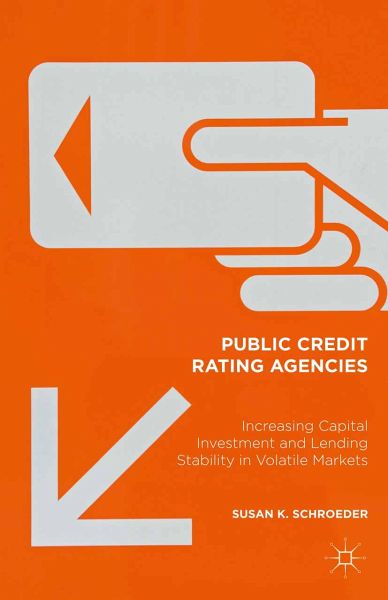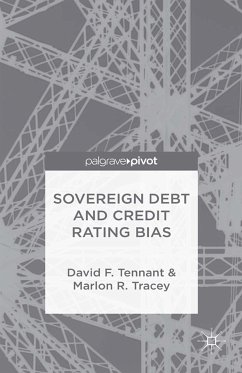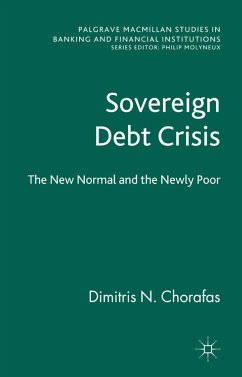
Public Credit Rating Agencies (eBook, PDF)
Increasing Capital Investment and Lending Stability in Volatile Markets
Versandkostenfrei!
Sofort per Download lieferbar
72,95 €
inkl. MwSt.
Weitere Ausgaben:

PAYBACK Punkte
36 °P sammeln!
In the aftermath of the Global Financial Crisis, there have been many criticisms weighed against private credit rating agencies. Many claim they only exacerbate financial market volatility by issuing faulty public statements, ratings warnings, and downgrades. This instability increases the uncertainty in business environments and weakens the pace of business investment. Their rating changes also prompt national governments to reduce their spending at a time when fiscal expenditures are crucial for economic recovery. Public Credit Rating Agencies argues for the creation of national public credi...
In the aftermath of the Global Financial Crisis, there have been many criticisms weighed against private credit rating agencies. Many claim they only exacerbate financial market volatility by issuing faulty public statements, ratings warnings, and downgrades. This instability increases the uncertainty in business environments and weakens the pace of business investment. Their rating changes also prompt national governments to reduce their spending at a time when fiscal expenditures are crucial for economic recovery. Public Credit Rating Agencies argues for the creation of national public credit rating agencies, offering the first in-depth discussion of their implied role and function operating alongside private agencies. Schroeder provides an up-to-date overview of the ratings industry and the government bodies that monitor its activities. She suggests that the proper implementation of public credit rating agencies will promote the stability of lending, further development and adaptation of new technology, and increase labor productivity and the profitability of new investment in businesses. Finally, this book clarifies the inconsistencies that have surfaced between public budgeting and a rating agency's evaluation of national budgets.
Dieser Download kann aus rechtlichen Gründen nur mit Rechnungsadresse in A, B, BG, CY, CZ, D, DK, EW, E, FIN, F, GR, HR, H, IRL, I, LT, L, LR, M, NL, PL, P, R, S, SLO, SK ausgeliefert werden.












